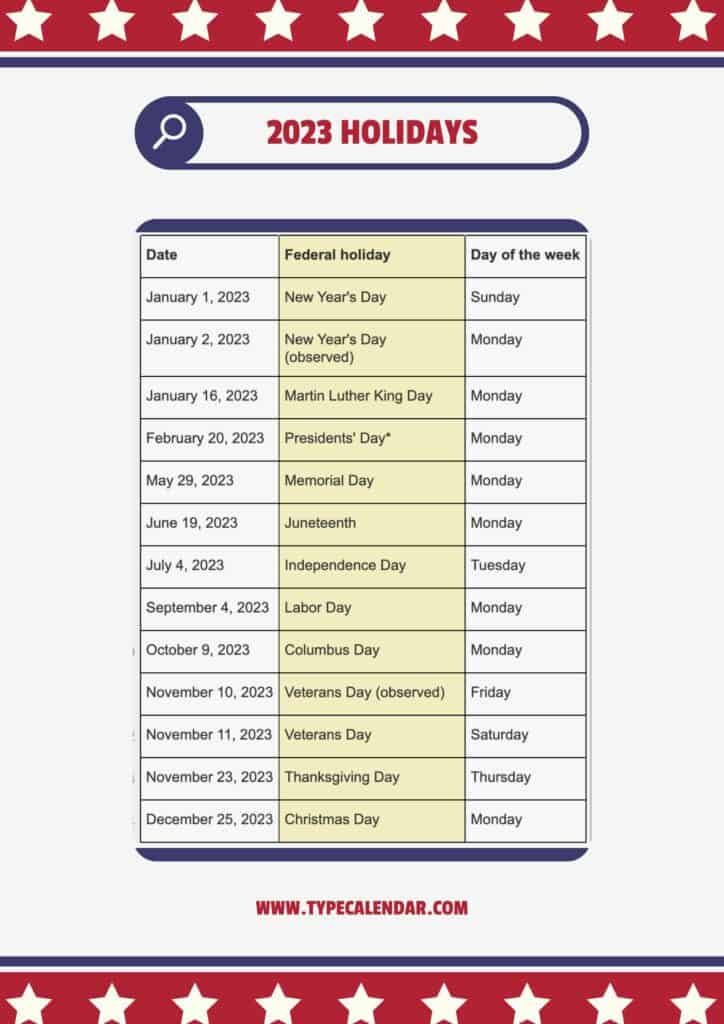
Christmas Eve, which falls on December 24th, is a significant day for many Americans, but its status as a federal holiday is not always clear-cut. In this article, we'll delve into the details of Christmas Eve's federal holiday status, its observance, and what it means for employees and businesses across the United States.
Christmas Eve is not a federal holiday in the classical sense, but it is a day that is widely observed and celebrated by many Americans. While it is not a federally mandated holiday, many businesses, schools, and government institutions choose to close or observe a reduced schedule on Christmas Eve.
Is Christmas Eve a Federal Holiday?
According to the United States Office of Personnel Management (OPM), Christmas Day, which falls on December 25th, is a federal holiday. However, Christmas Eve is not explicitly listed as a federal holiday. This means that federal agencies, courts, and other government institutions are not required to close on Christmas Eve.
That being said, many federal agencies and institutions choose to close or observe a reduced schedule on Christmas Eve, often as a matter of tradition or to allow employees to spend time with their families. This is particularly true for agencies that are not essential to national security or public safety.

Christmas Eve Observance in the United States
While Christmas Eve is not a federal holiday, it is widely observed and celebrated across the United States. Many businesses, schools, and government institutions choose to close or observe a reduced schedule on Christmas Eve, often to allow employees to attend to personal and family obligations.
In fact, a survey conducted by the Society for Human Resource Management (SHRM) found that in 2020, 77% of employers planned to close on Christmas Eve, while 14% planned to observe a reduced schedule.
What Does Christmas Eve Mean for Employees and Businesses?
For employees, Christmas Eve can be a welcome break from the hustle and bustle of daily life. Many employers choose to give their employees the day off, or offer flexible scheduling to allow them to attend to personal and family obligations.
For businesses, Christmas Eve can be a challenging time, particularly for those that rely on holiday sales or customer traffic. However, many businesses choose to close or observe a reduced schedule on Christmas Eve, recognizing that it is a time for employees to recharge and spend time with their loved ones.

Key Takeaways
In summary, while Christmas Eve is not a federal holiday in the classical sense, it is widely observed and celebrated across the United States. Many businesses, schools, and government institutions choose to close or observe a reduced schedule on Christmas Eve, often to allow employees to attend to personal and family obligations.
Here are some key takeaways:
- Christmas Eve is not a federally mandated holiday, but it is widely observed and celebrated across the United States.
- Many businesses, schools, and government institutions choose to close or observe a reduced schedule on Christmas Eve.
- For employees, Christmas Eve can be a welcome break from the hustle and bustle of daily life.
- For businesses, Christmas Eve can be a challenging time, particularly for those that rely on holiday sales or customer traffic.
Gallery of Christmas Eve Images




Is Christmas Eve a federal holiday?
+No, Christmas Eve is not a federal holiday in the classical sense. However, many businesses, schools, and government institutions choose to close or observe a reduced schedule on Christmas Eve.
What does Christmas Eve mean for employees?
+For employees, Christmas Eve can be a welcome break from the hustle and bustle of daily life. Many employers choose to give their employees the day off, or offer flexible scheduling to allow them to attend to personal and family obligations.
How do businesses observe Christmas Eve?
+Many businesses choose to close or observe a reduced schedule on Christmas Eve, often to allow employees to attend to personal and family obligations. Some businesses may also offer flexible scheduling or remote work options to accommodate employees' needs.











